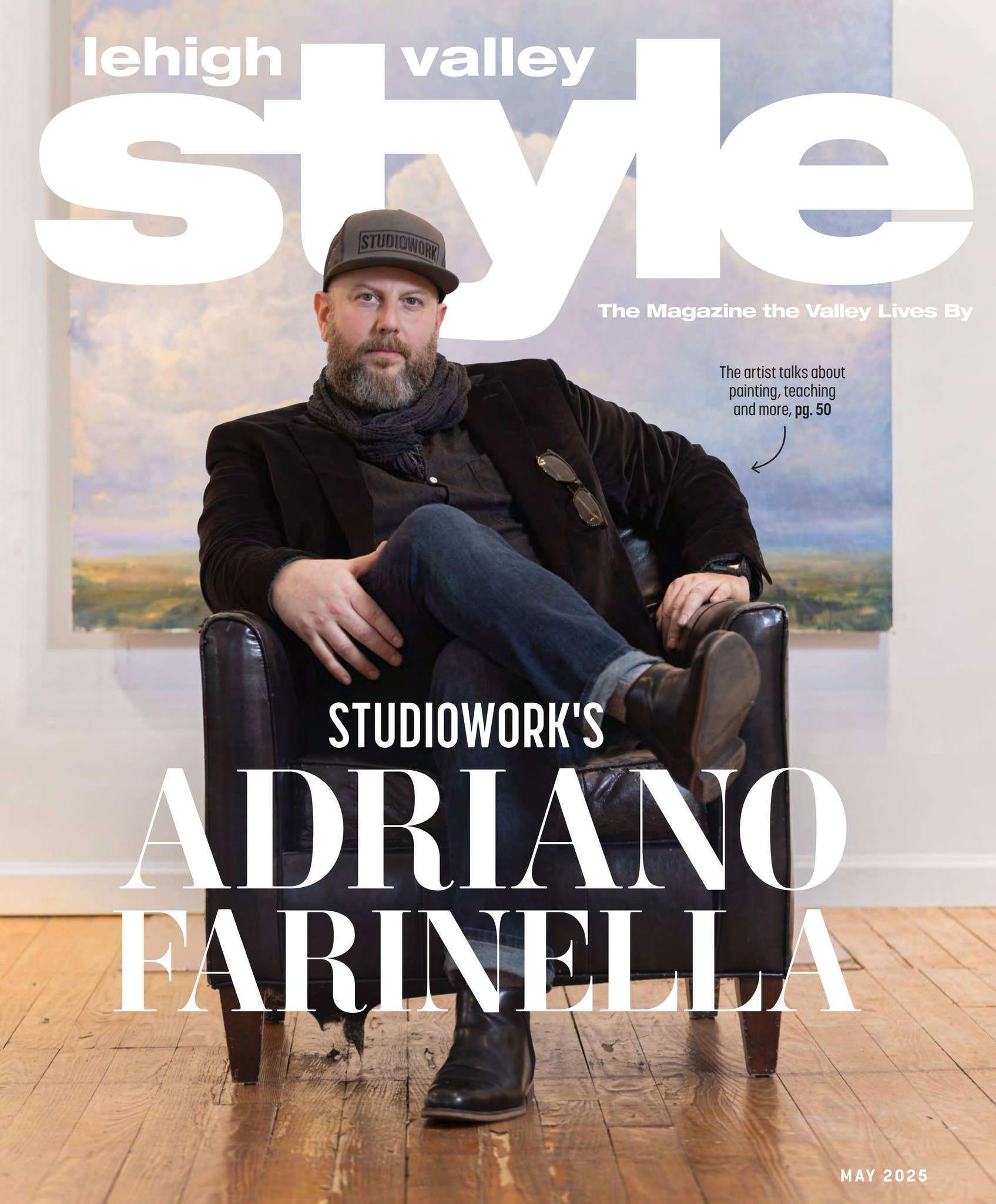There may be no more passionate group of people than those who devote their lives to animal welfare. Our area is blessed with dozens of organizations whose staff and volunteers work 24/7 to save a beating heart. They're the ones who sleep on the office couch during snowstorms, get up before dawn to transport horses or show up at the shelter after midnight to take in dogs for a family with an emergency.
We profile three animal sanctuaries here—all nonprofits and no-kill. Each has its own challenges and strengths, but if one thing is true for all, it is that they never ever give up on the animals.
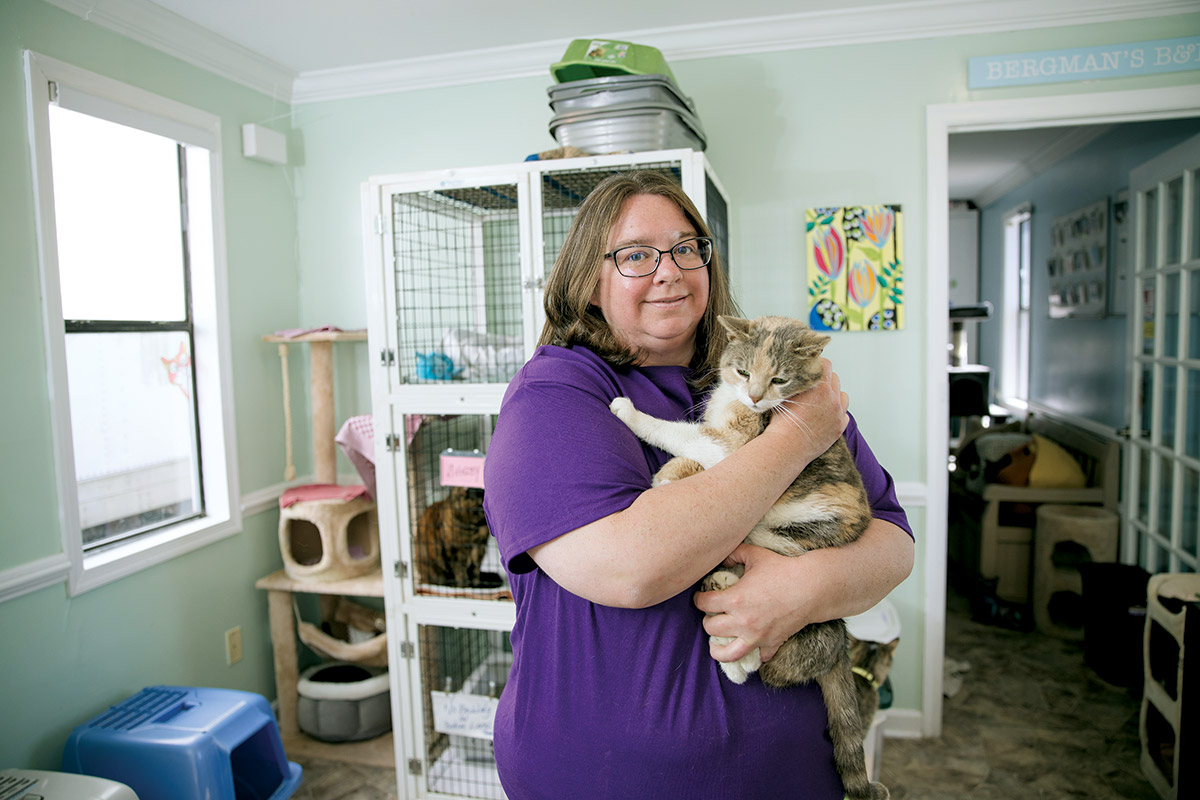
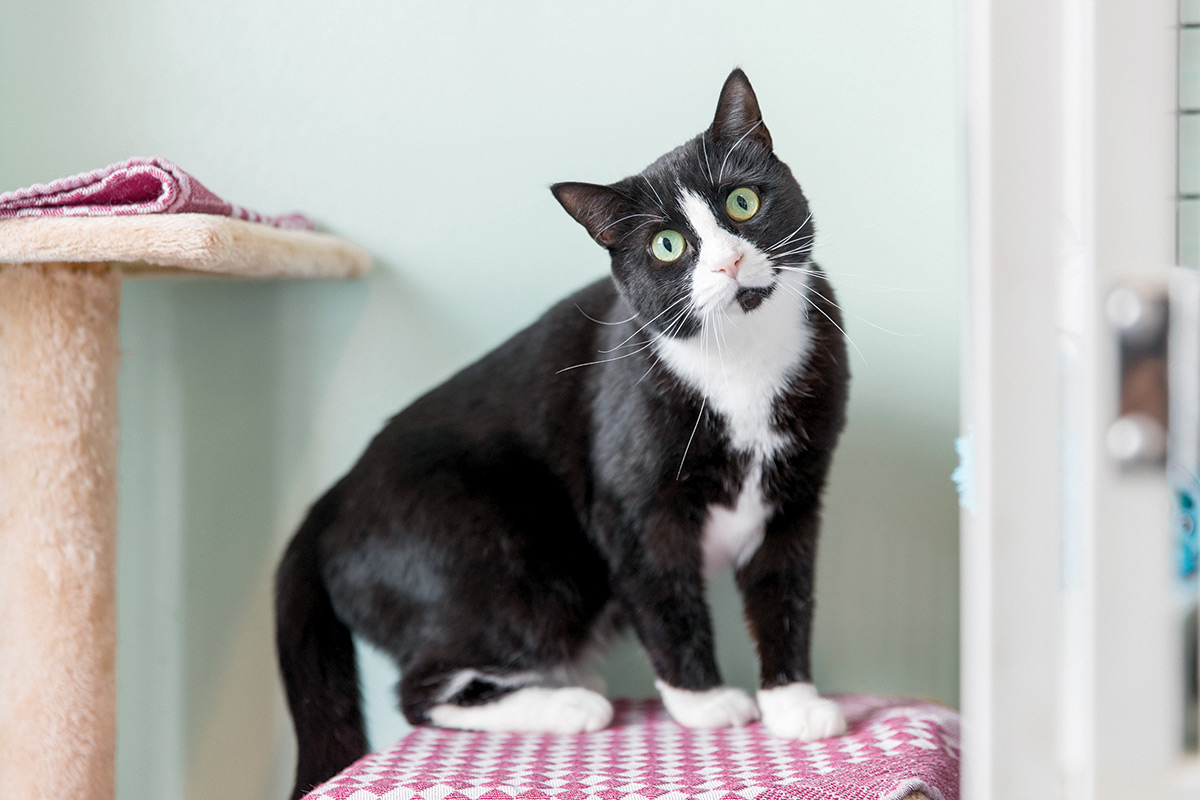
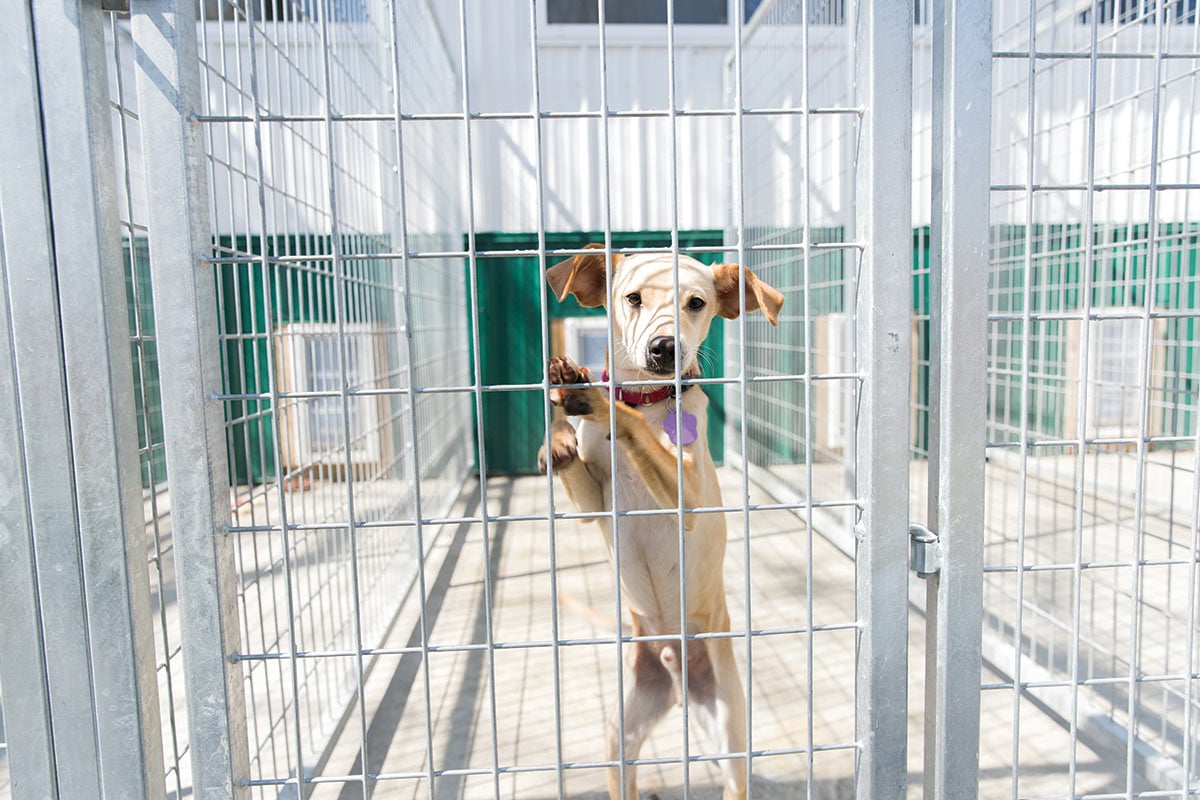

When pulling into the parking lot at The Sanctuary at Haafsville, be mindful of the trio of outdoor cats on patrol. Odin, Micah and Bergman are permanent residents and, according to shelter manager Amanda Kline, “they run the place.”
Actually, it's Kline who's in charge of day-to-day operations at Haafsville, an animal rescue located just west of Fogelsville on eight acres donated by the Tercha family. Opening in 2010 as a cats-only shelter, Haafsville has since expanded to include dogs. The new Mutt Hut is home to up to 16 canines, each with its own kennel. Cats—about 60 at this writing—occupy their own building where they are free to roam and enjoy cat trees and other intriguing perches.
It's a wooded and peaceful setting, with dog-walking trails that wind along a creek in the back of the property. Haafsville is blessed with over 200 volunteers, so the dogs are guaranteed plenty of fresh air, exercise and occasional dip in the creek, weather permitting. Volunteers, too, benefit from their experience. “I feel so much better,” they often say, after walking the dogs or spending time with the cats. In these stressful times, time spent in nature and interacting with animals is a real mood-booster.
When it warms up, even the cats can venture outside using one of the two cat patios, or “cat-ios,” built by Eagle Scouts. “That's another thing that makes us unique,” says Kline. “We are open to the public for people who need to do service hours, whether for school, church or Scouts.” The dog play yards and agility equipment are all Eagle Scout projects. A lovely memorial garden built by an Eagle Scout honors departed animals. Of the colorful rocks nestled in the flowers, Kline says, “Sometimes people will bring in a donation in memory of their animal and we let them take a rock home and paint it and bring it back.”
Haafsville takes in about 100 cats and 35 dogs every month. Some of them are strays, and the shelter partners with 15 municipalities in Lehigh and Berks counties to bring these animals in, moving quickly to reunite them with their owners, if possible. Other animals are surrendered by their owners, or brought in during an emergency situation or by someone looking ahead to lengthy military deployment. The shelter will find a foster home in certain circumstances.
Haafsville also takes animals (often with special medical needs) from ACCT Philly, an open-admission shelter in Philadelphia obliged to take any animal that comes in. And then there are the van trips down south to pick up dogs and cats from rescues in Florida, Tennessee, Texas and Louisiana. “They don't spay or neuter like we do up here,” Kline says. Many animals are dumped on the streets, and so it is a great feeling for her to help them. “An animal is an animal whether it is in our backyard or in another state.”
Ultimately, every animal gets adopted, Kline says, “and they're here until we do find a home for them.” Volunteers take especially good care of the long-term residents, in many cases fostering them in their own homes. This was especially true with cats during COVID-19, when Haafsville cut back on volunteers and animals in the shelter. Plenty of those cats wound up adopted by the volunteers, a situation Kline calls “foster fails” but likely “the best failure ever.”
New volunteers are always welcome at Haafsville. It's a well-organized, tight-knit group that bonds with the animals and each other, often going out to dinner or caring for each other's pets during vacations. Volunteers provide all the animal care and run the adoption and foster programs; Kline is the only paid staff member.
Right now, it's kitten season, which means a scramble to find foster homes for the little ones and their moms, but it always works out. Anyone wanting to adopt can stop in on Saturdays. Hours are 10 a.m. to 2 p.m. for dogs, and noon to 2 p.m. for cats (between 10 a.m. and noon for cats by appointment only).
901 Nestle Way, Breinigsville | 484.285.5445 | thesanctuarypa.org
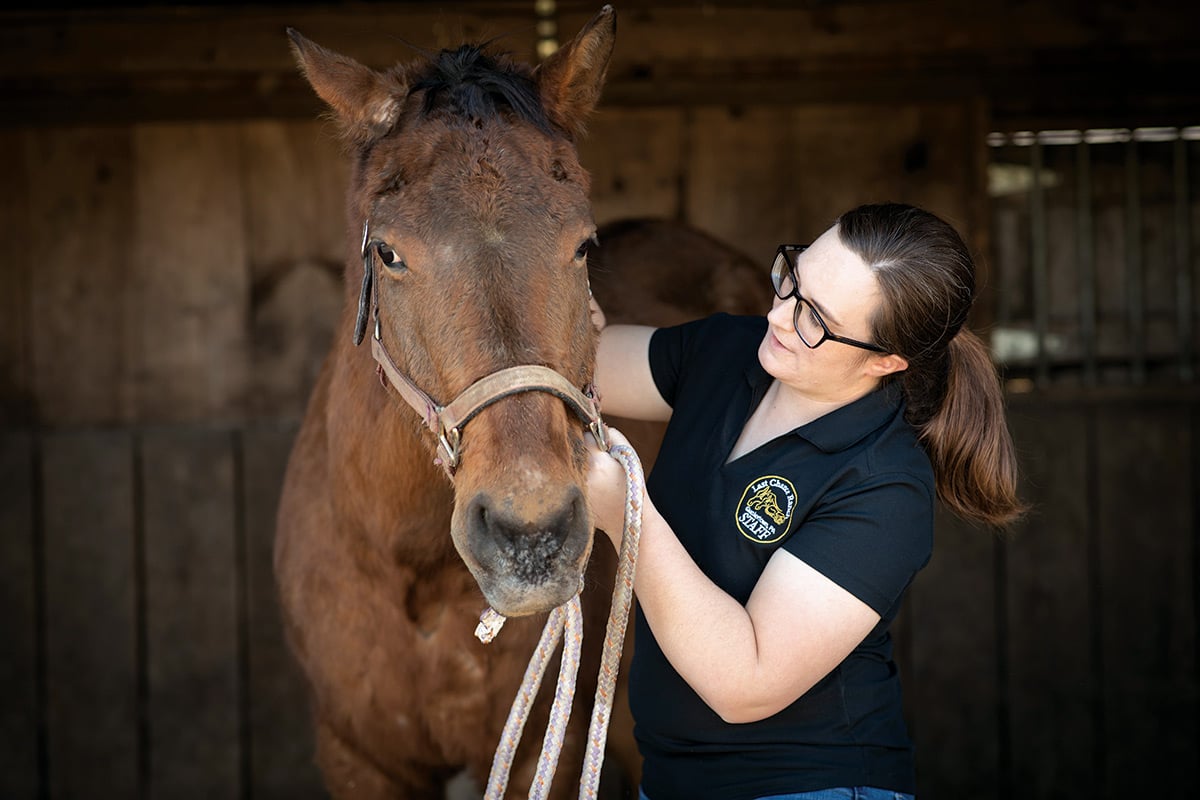
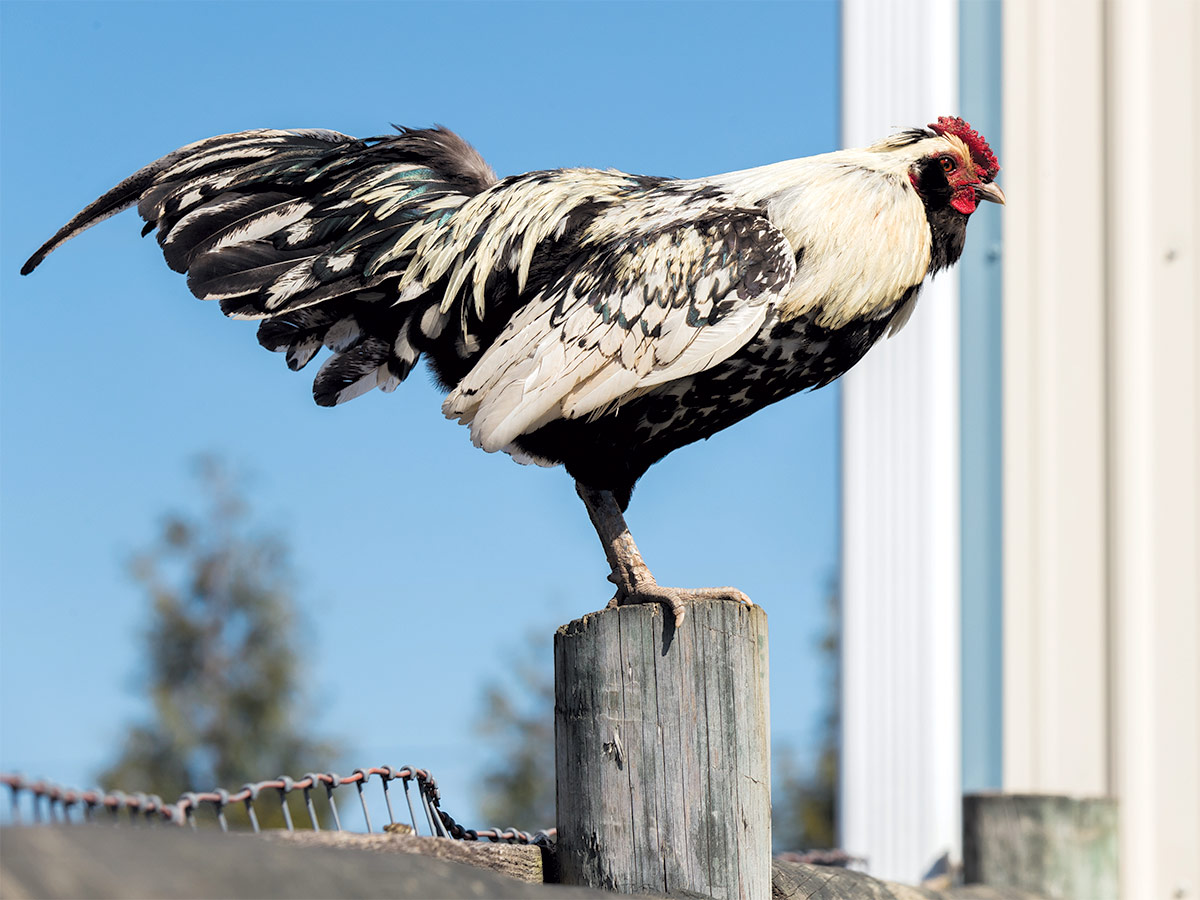
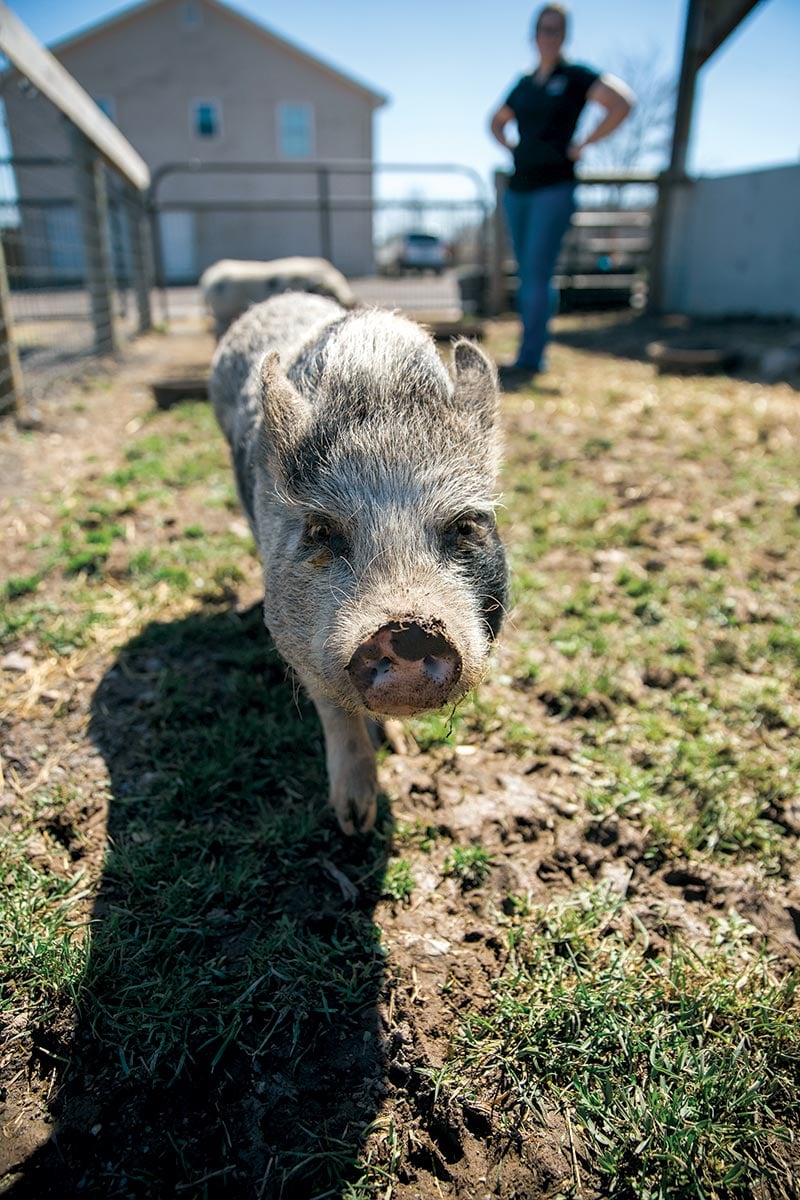

No two days are alike for Jackie Burke, executive director at Last Chance Ranch Animal Rescue. “One day I might be glued to my desk, procuring donors for a major fundraising event. The next day, I might be transporting horses from auction or another bad situation back to the farm—their freedom ride,” she says.
Last Chance Ranch (LCR) is not your typical animal rescue. Its farm setting on 35 acres outside Quakertown is home to a variety of barnyard animals as well as domesticated ones. “We help everything from hamsters to horses,” Burke likes to say. On any given day, there might be cows, sheep, goats, horses, chickens and potbellied pigs out in the yard. The pigs are almost a guarantee: They're cute when small, but too often surrendered by owners who can't handle them when grown.
Horses have been a focus since LCR's founding in 1999 as an equine rescue. After helping in the Hurricane Katrina recovery effort, LCR added other animals in 2005. Today, the shelter takes in approximately 1,000 animals a year. There's room for about 150 animals at once: typically, 40–50 horses, 50–60 dogs and 15 smaller animals like rabbits, guinea pigs and cats. A few animals, such as the miniature cows, are permanent residents and part of LCR's educational programs.
“Everyone stays here until they find their forever home, or put in a foster home if they've been here a little longer,” say Burke. “There's no ticking clock.”
Horses often arrive at LCR in rough shape, especially those purchased at auction that otherwise would have been slaughtered. “They definitely need to be rescued,” says Burke, who has a background in equine science. Rehabilitation is the next step, which can take months. Some are diagnosed with EPM, or equine protozoal myeloencephalitis, a debilitating, sometimes fatal disease causing muscle weakness and atrophy. Most of these horses are successfully rehabbed using an Anderson sling to keep them upright.
Other horses are surrendered by owners or have been seized by the Pennsylvania SPCA from farms or other situations of neglect. “We do get a lot of skinny horses,” says Burke, “but they're here and getting the proper care and will be adopted out once they are rehabilitated.” LCR has a full-time trainer and part-time trainer on staff to test them as riding horses. Some are used in LCR's riding instruction program until adopted.
What's significant about the horse adoption program is that LCR retains ownership of the horse. If an owner finds they can't care for them any longer, the horse must be returned. “They are expensive animals and they live a long time: 30-plus years,” says Burke. When incomes shrink due to divorce, the pandemic or something else, LCR is there so those animals never end up in a bad situation again.
Despite (or maybe because of) COVID-19, last year saw an increased demand for pets. “People have more time at home now and can make the commitment to the pet,” Burke explains. With applications for dogs outnumbering the number of dogs available, many area shelters wound up creating waiting lists.
LCR helps more than 600 dogs a year find a new home. They come in from local shelters like ACCT Philly, PSPCA and some from out of state. “Oftentimes, I am getting up at 5:45 a.m. on a Sunday to get on the road to pick up dogs from our transport partner, Animal Aid USA, who brings up 200-plus dogs each month from rural areas of Georgia.” At LCR they receive the time and medical attention they so desperately need, and great care is taken to find them the best new owner. (Right now, adoption is by appointment only.)
In any normal year, LCR will host a lot of fundraising events. The pandemic caused most of them—including the annual gala—to be canceled, scaled down or go virtual. LCR's Thrift Store closed for three months and last November moved to a new location at 93 South West End Boulevard in Quakertown. It's a big source of revenue, generating almost $200,000 annually by selling housewares, clothing, children's items and pet supplies. You might also find cats napping in the two cat condos inside the store. They, too, await a forever home. Of the cats, and all the animals at LCR, Burke says, “We are giving them their best chance of life.”
9 Beck Rd., Quakertown | 215.538.2510 | lastchanceranch.org
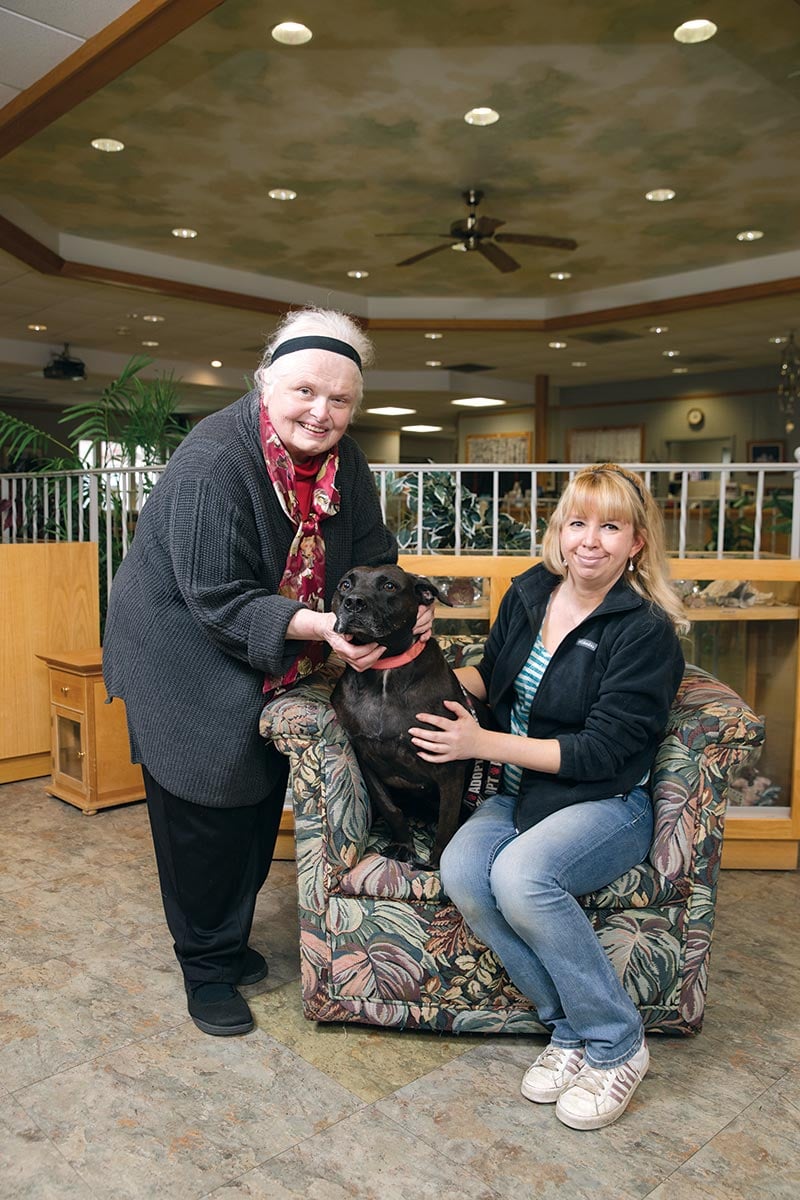
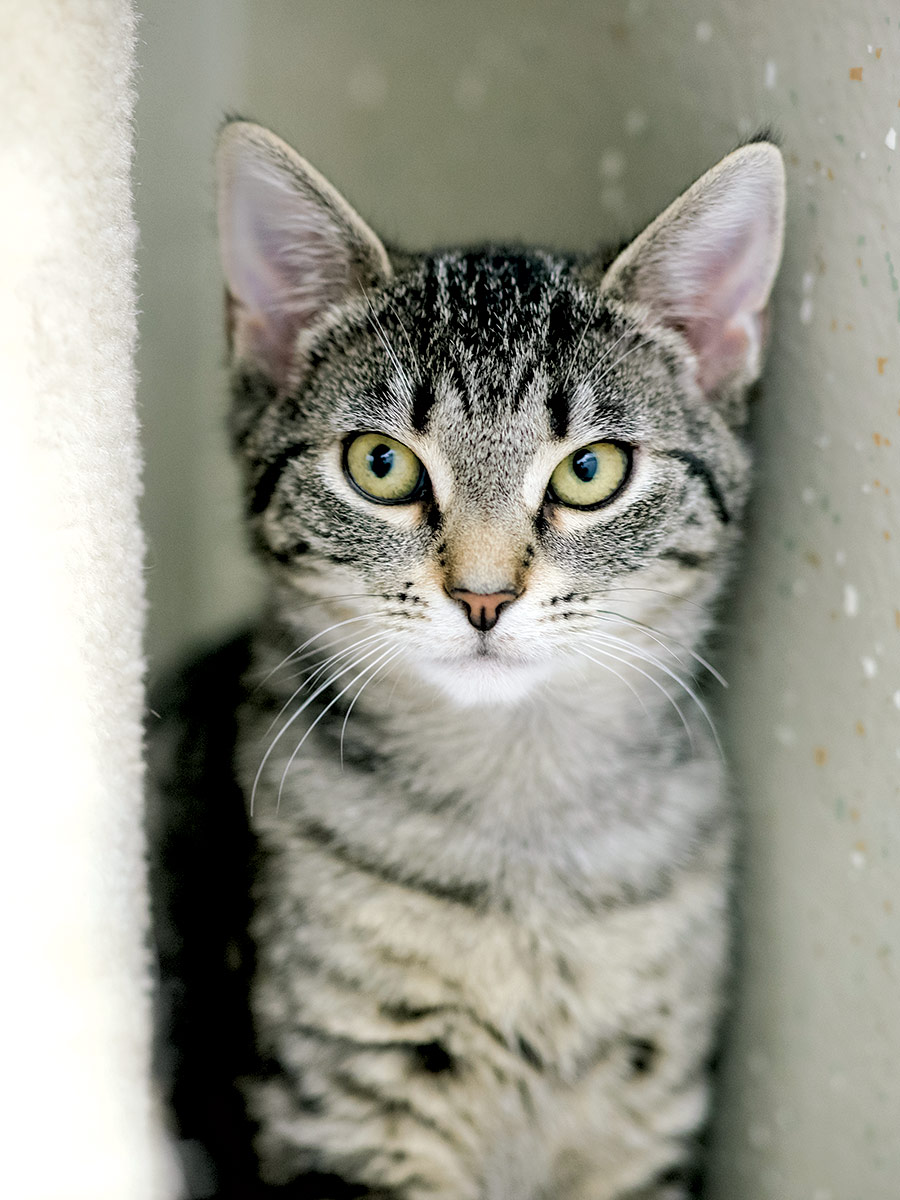
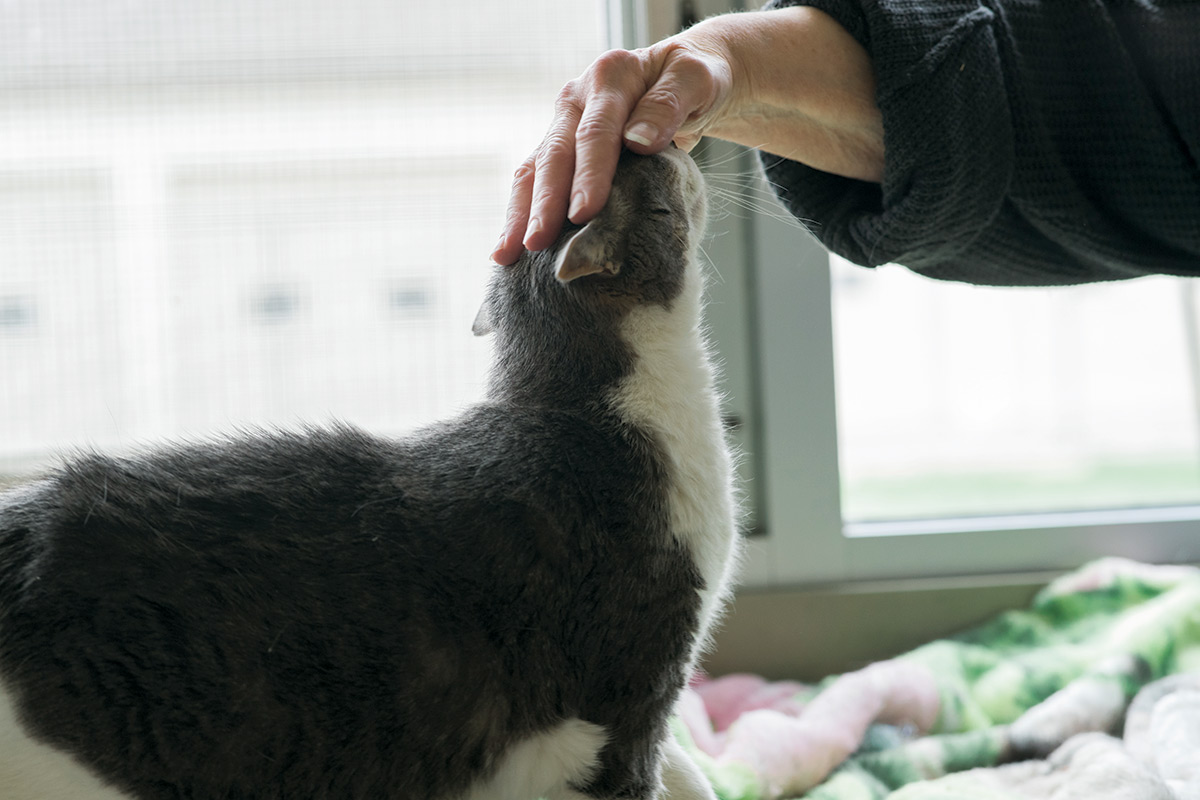

Lois Gadek has been rescuing animals since she was a little kid. Now in her seventies and president of the board of directors for Animals in Distress (AID), she has been saving lives for a very long time.
She's a passionate advocate for the animals, going so far as sitting on the cold concrete floors in the kennels at AID's old Allentown facility to experience what it was like for the dogs in winter. “It's unspeakable,” Gadek says. “I made a promise that if we ever had the chance to relocate, we would make sure no dog ever slept on a cold floor again.”
Twenty years ago, they did relocate—to a 42-acre farm in Upper Saucon Township. A sprawling 21,000-square-foot facility was built with heated floors in the dog kennels and plenty of windows in the cat wing for fresh air and bird watching. Today, about 300 cats and 50 dogs call it home.
To tell the story of AID is to tell the story of the animal shelter movement. Gadek's had a front-row seat to the shelter culture's evolution from euthanizing animals who stood no chance at adoption to the growing “No Kill” initiative of saving them all.
AID was one of the first no-kill shelters in the country, founded in 1977 by a group of animal advocates back when the concept was considered radical and the advocates branded as “soft-hearted, kitty-cat-loving broads.” These “feisty people,” Gadek says—all volunteers—started out in a small rented boarding kennel in Emmaus (now a Pizza Hut), before purchasing a run-down 2.2-acre farm off Race Street in Allentown near the airport. Years of flooding and other practical considerations led to the purchase of the current site.
Gadek was involved every step of the way in finding the land and designing the new shelter. She learned about AID early on, first supporting the cause with donations and then as a foster mom. It was after adopting Max that she was asked to join the AID board. Having just lost one of her beloved dogs to cancer, Gadek went to AID to adopt. “I wanted every big dog in the place,” she says, but after two and a half hours of indecision she asked what dog needed a home the most and wound up with Max, a black shepherd Airdale mix who'd been there for years. “He was a different-looking dog. My mother, who was with me, asked if I was crazy.”
AID has a long history of helping with the hardest cases. You'll find pets with diabetes, cancer or missing limbs. There are rooms reserved just for cats with FIV or feline leukemia. There's not a high volume of animals going in and out of the shelter, says Gadek. “Our poor souls; most all of them have a real story where if we didn't step up they wouldn't be alive.”
There are gentle dogs like Midnight, who endured abuse as a “bait dog” for fighting dogs before winding up in a kill shelter, finding a home and then losing it. A big-hearted vet alerted AID to her plight. There are cats like the “Snow Kittens,” a tiny trio found dumped in a box in someone's back yard during a snowstorm. The kind homeowners rounded them up, one by one, and brought them to AID.
A hard-luck story doesn't mean an animal is not adoptable, however, and AID takes great pains to make sure animal and adopter are a good fit. (Currently, adoptions are by appointment only.) AID is also a valuable resource for pet owners one step away from surrendering their animals, providing them with advice on behavior issues and recommendations of vet specialists.
It takes a lot of money to care for 350 animals. Vet bills alone range from $20,000 to $30,000 a month, and that's after generous vet discounts. AID takes no public money, so revenue comes from donations and bequests in people's wills. Gadek makes clear that all monies go directly for the animals' benefit. AID has a small, paid kennel staff and plenty of volunteers—all there not for glory but for the animals.
Gadek is fond of a sign by the front door that reads: Peace To All Who Enter Here. It's a message for both animals and people alike, letting them know they will be treated with respect. “I don't want anyone to feel afraid here, that anything bad is going to happen,” she says. “All I wanted was a safe place to keep animals that didn't have any place to be, and here it is.”
5075 Limeport Pike, Coopersburg | 610.966.9383 | animalsindistresspa.org
The Animal Food Bank of the Lehigh Valley
The Animal Food Bank of the Lehigh Valley offers lifesaving assistance in these trying times. Their mission says it all: To keep companion animals in loving homes and prevent their surrender to the shelter system by supplying families with pet food in times of economic distress.
Founder Vanessa (Segaline) Miller was a 14-year-old Girl Scout and member of Bethlehem's Trinity Episcopal Church in 2005 when she learned guests of the church's soup kitchen were taking leftovers home to their pets. She stepped up and organized a system to distribute pet food to those guests every month. With the need for their services growing ever larger, in 2009 The Animal Food Bank obtained nonprofit status and moved from the church to their current location at 860 Broad Street in Emmaus.
AFBLV is the only pet food bank in the Valley, with twice-monthly distributions from their Emmaus location. As a way of promoting responsible pet ownership, everyone requesting food must provide proof their pets are spayed/neutered, vaccinated and licensed.
Interested in donating?
Food and supplies are accepted at several convenient locations around the Valley. Monetary donations are always welcome and are tax-deductible. For more information, visit afblv.com or call 610.421.8014.







